Iraq security official: US ends combat mission but troops remain on ground
Iraq's national security adviser says the US-led coalition purportedly fighting the Daesh terrorist group has ended its combat mission in the country, but still maintains presence there under a different name.
"We are officially announcing the end of the coalition forces' combat mission," Iraq's national security adviser Qassem al-Aaraji said on Twitter on Thursday, adding that about 2,500 American troops stationed in the Arab country would shift to a training and advisory role.
"The relationship with the international coalition continues in the areas of training, advising and capacity building" of Iraqi troops, he added after a meeting between the coalition and the Joint Operations commanders of the Iraqi security forces.
اليوم أنهينا جولة الحوار الأخيرة مع التحالف الدولي والتي بدأناها في العام الماضي، لنعلن رسميا انتهاء المهام القتالية لقوات التحالف وانسحابها من العراق، وستستمر العلاقة مع التحالف الدولي في مجال التدريب والاستشارة والتمكين.
— قاسم الاعرجي (@qassimalaraji) December 9, 2021
The timeframe for the foreign troops' exit has not been declared yet and there has been so far no confirmation of Aaraji’s remarks from US-led coalition’s officials.
US President Joe Biden and Iraq’s Prime Minister Mustafa Al-Kadhimi declared in July that the US mission in Iraq will transition from combat to “advisory” role by the end of the year.
“The delegations decided, following recent technical talks, that the security relationship will fully transition to a training, advising, assisting, and intelligence-sharing role, and that there will be no US forces with a combat role in Iraq by December 31, 2021,” Baghdad and Washington said in a joint statement on July 26.
The agreement, which has effectively given a mere new name to the US military presence in Iraq, has enraged Iraqi resistance groups, which have played a significant role in defeating the Daesh terrorist group in Iraq in 2017.
Daesh controlled roughly a third of Iraq between 2014 and 2017, including major cities such as Mosul. The Iraqi army defeated the Takfiri group in 2017 with the help of popular resistance groups, but its members are still present in some areas of northern Iraq and northeastern Syria.
In October, Iraq's anti-terror Kata'ib Hezbollah group said all Iraqi resistance groups and factions will “use all the weapons at their disposal” against American forces in the Arab country if Washington refuses to withdraw its forces despite a parliament’s decision to expel them from Iraq.
Anti-US sentiment has been growing in Iraq since last year's assassination of Abu Mahdi al-Muhandis, the deputy head of the Popular Mobilization Units, along with the region's legendary anti-terror commander General Qassem Soleimani in Baghdad.
They were targeted along with their companions on January 3, 2020, in a terrorist drone strike authorized by former US president Donald Trump near Baghdad International Airport.
Two days after the attack, Iraqi lawmakers approved a bill that required the government to end the presence of all foreign military forces led by the US.
Heads of govt. branches vow to resolve economic woes, ensure public security
Several killed as explosion hits Kabul's secure district
Trump says 'feels no obligation' to pursue peace after Nobel Prize snub
Israeli military kills Palestinian teen in southern Gaza despite truce
Recent terrorist war on Iran similar to Israel’s pager attack on Lebanon: Qalibaf
VIDEO | Thousands rally in Kargil against US, Israel 'interference' in Iran
Hamas blasts ‘torture and brutality’ against Palestinian prisoners in Israeli jails
Truth as first casualty: Deconstructing disinformation campaign on Iran riots death toll


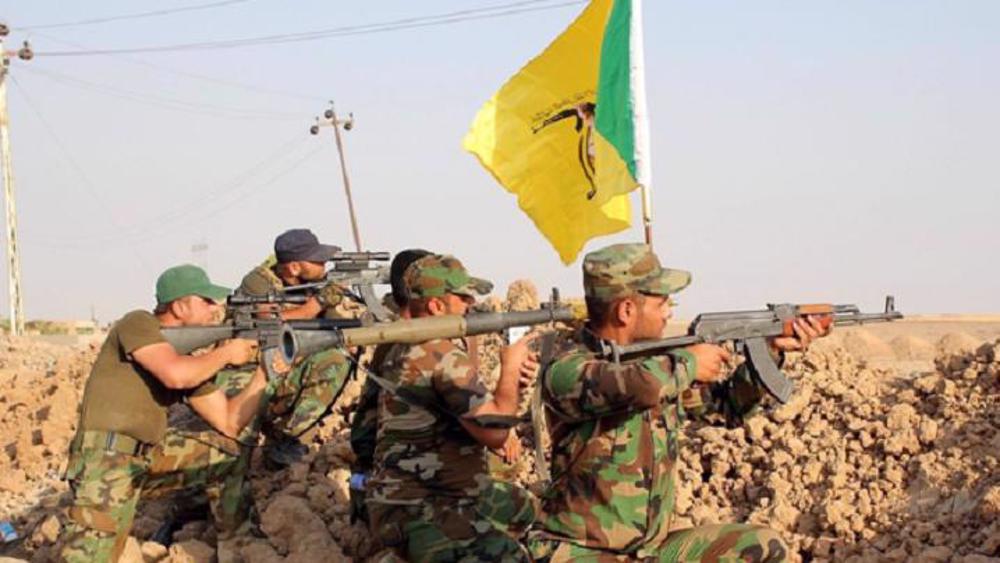
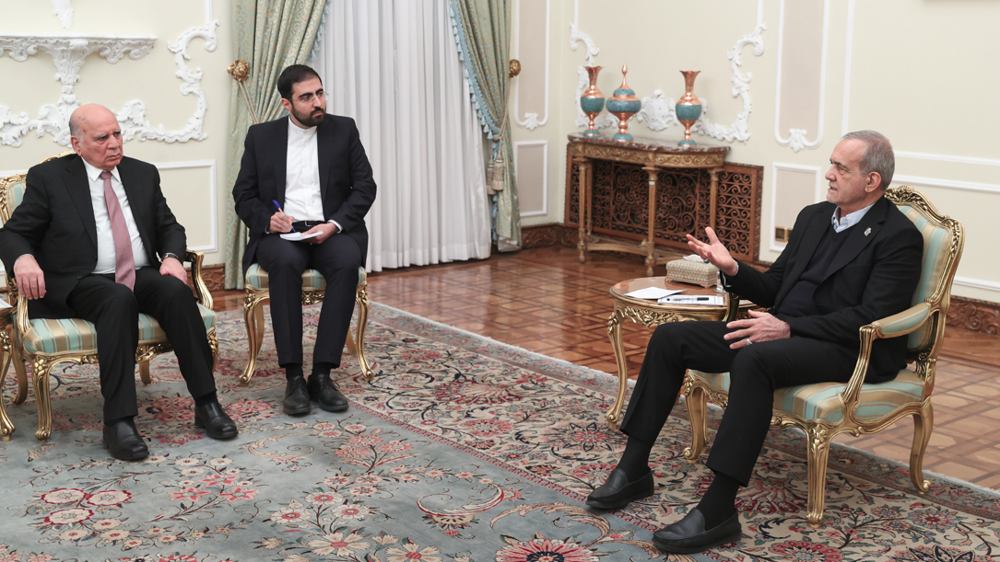
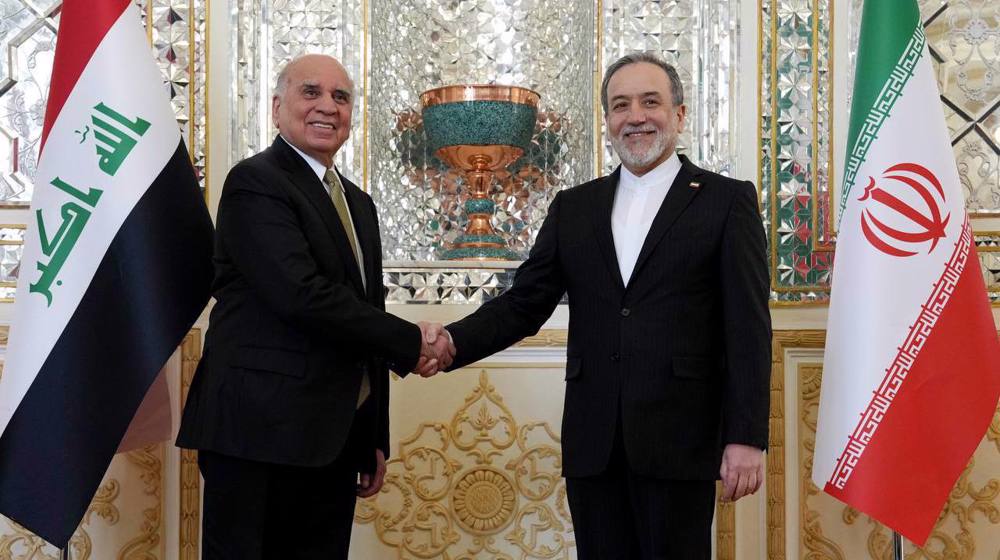
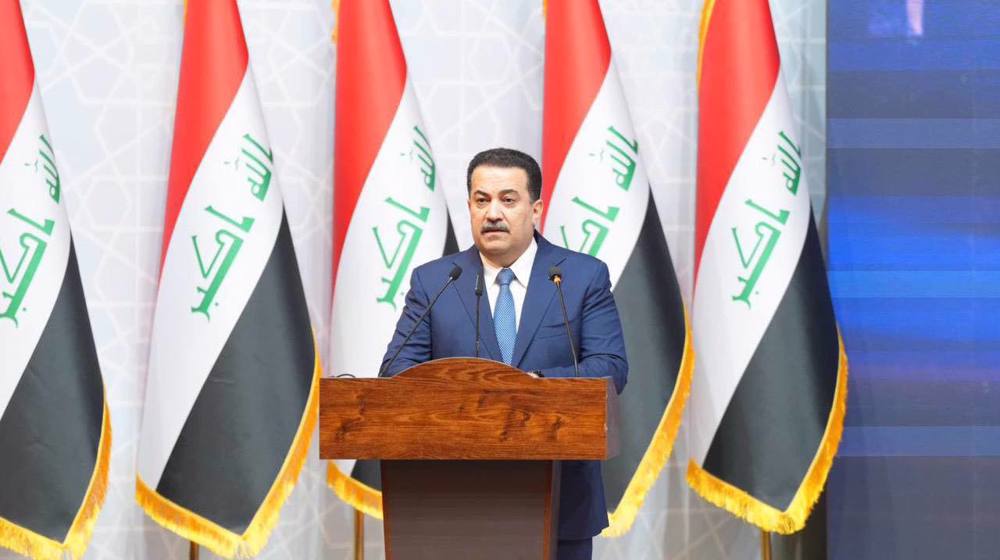



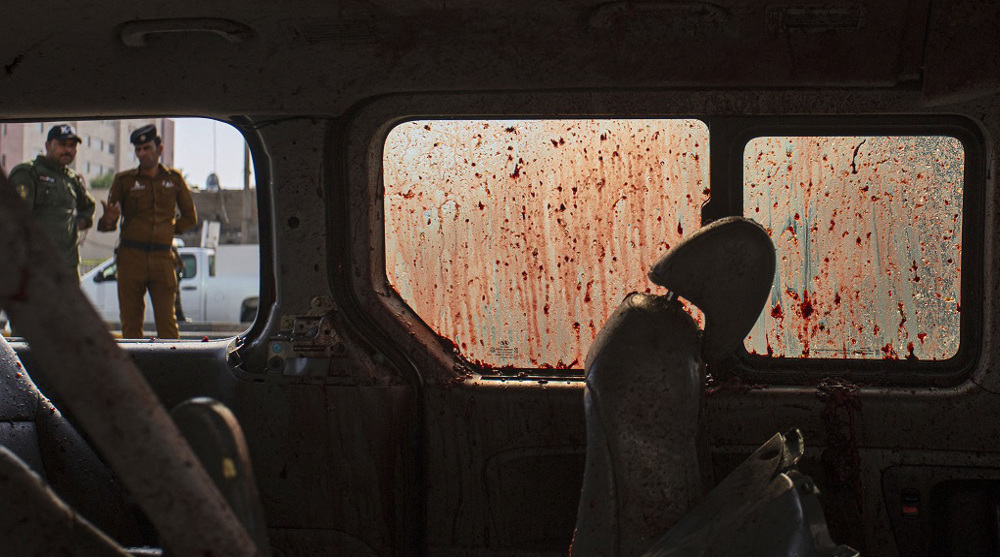
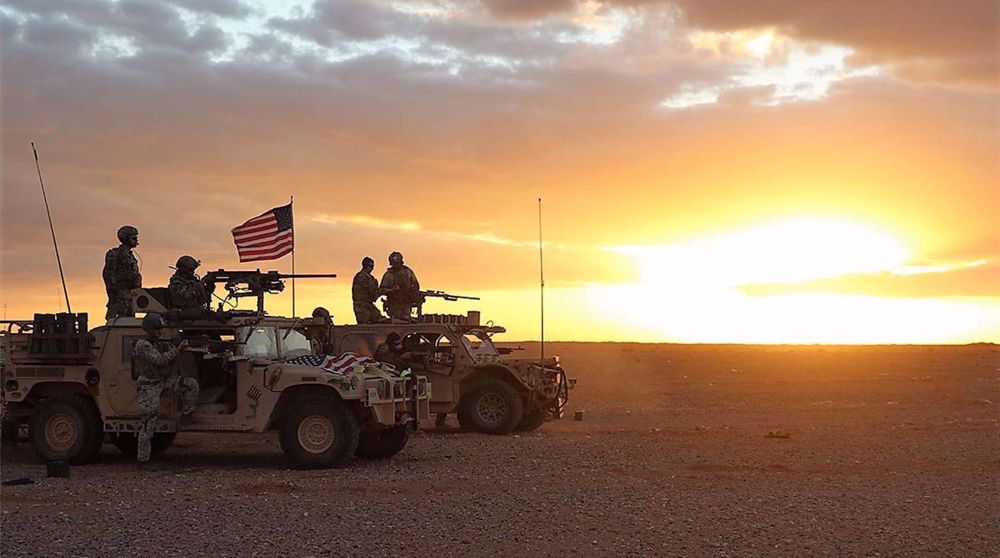
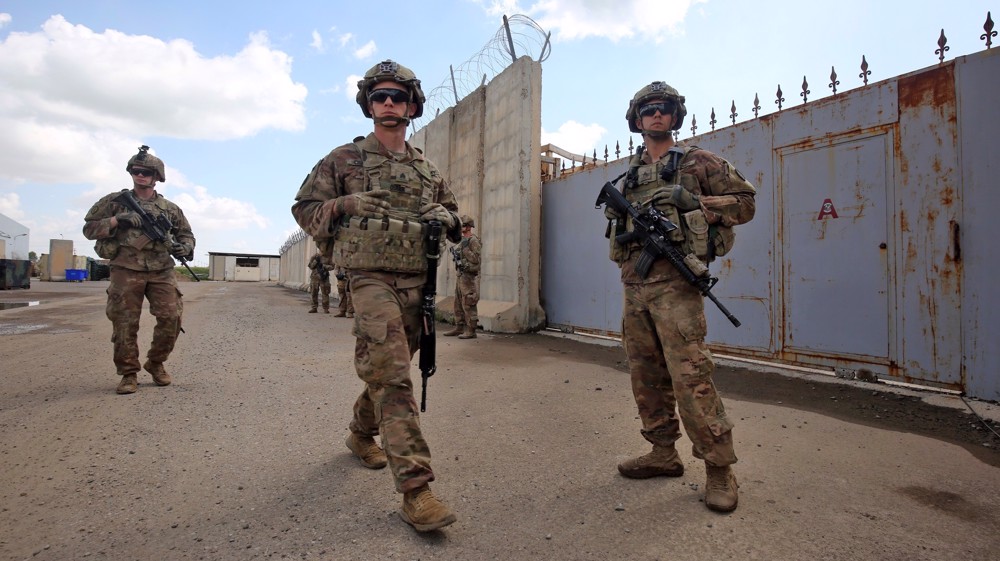

 This makes it easy to access the Press TV website
This makes it easy to access the Press TV website